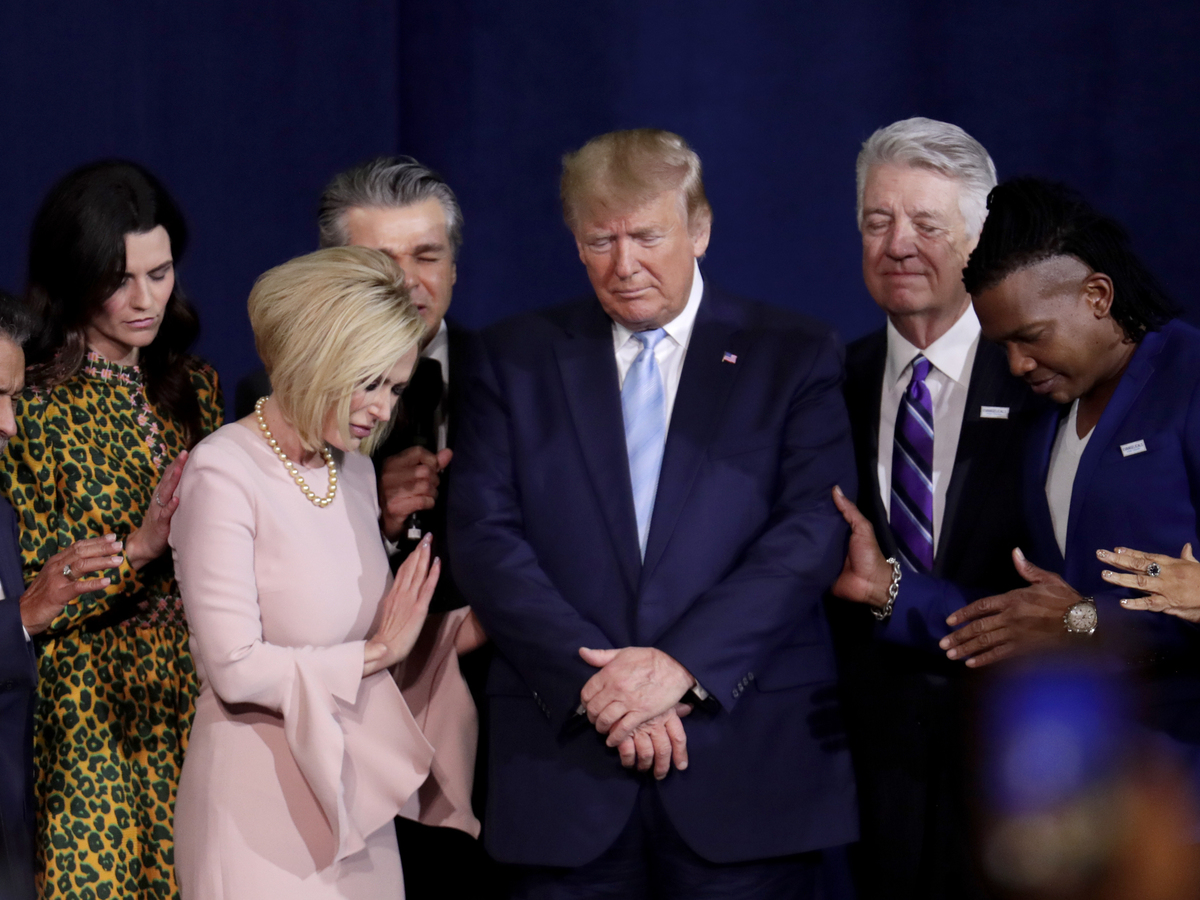
Pastor Paula White, left, and other faith leaders pray with President Donald Trump, center, during a rally for evangelical supporters at the King Jesus International Ministry church, Friday, Jan. 3, 2020, in Miami. (AP Photo/Lynne Sladky, File) Lynne Sladky/AP hide caption

Pastor Paula White, left, and other faith leaders pray with President Donald Trump, center, during a rally for evangelical supporters at the King Jesus International Ministry church, Friday, Jan. 3, 2020, in Miami. (AP Photo/Lynne Sladky, File)
Lynne Sladky/APSince his 2016 campaign for president, Donald Trump has made a point of cultivating Christian supporters. In numerous speeches he affirms their beliefs - and that their faith and values are under attack.
He has vowed to stand with Christians to defend their religion, to push back against threatening cultural and political forces and to champion their causes, like the roll back of abortion rights.
As his personal and legal troubles mounted, Trump claimed he was besieged, targeted because of who he was. That he was being persecuted.
The idea of persecution holds a particular meaning for Christians. But throughout history the idea has also been used in pursuit of political favor and power.
NPR's Sarah McCammon speaks with Candida Moss, author of "The Myth of Persecution," about the history of invoking persecution for political gain.
Sign up for Consider This+ to hear every episode sponsor-free and support NPR. More at plus.npr.org/considerthis
Email us at
This episode was produced by Avery Keatley. It was edited by Jeanette Woods and Courtney Dorning. Our executive producer is Sami Yenigun.

 Live Radio
Live Radio